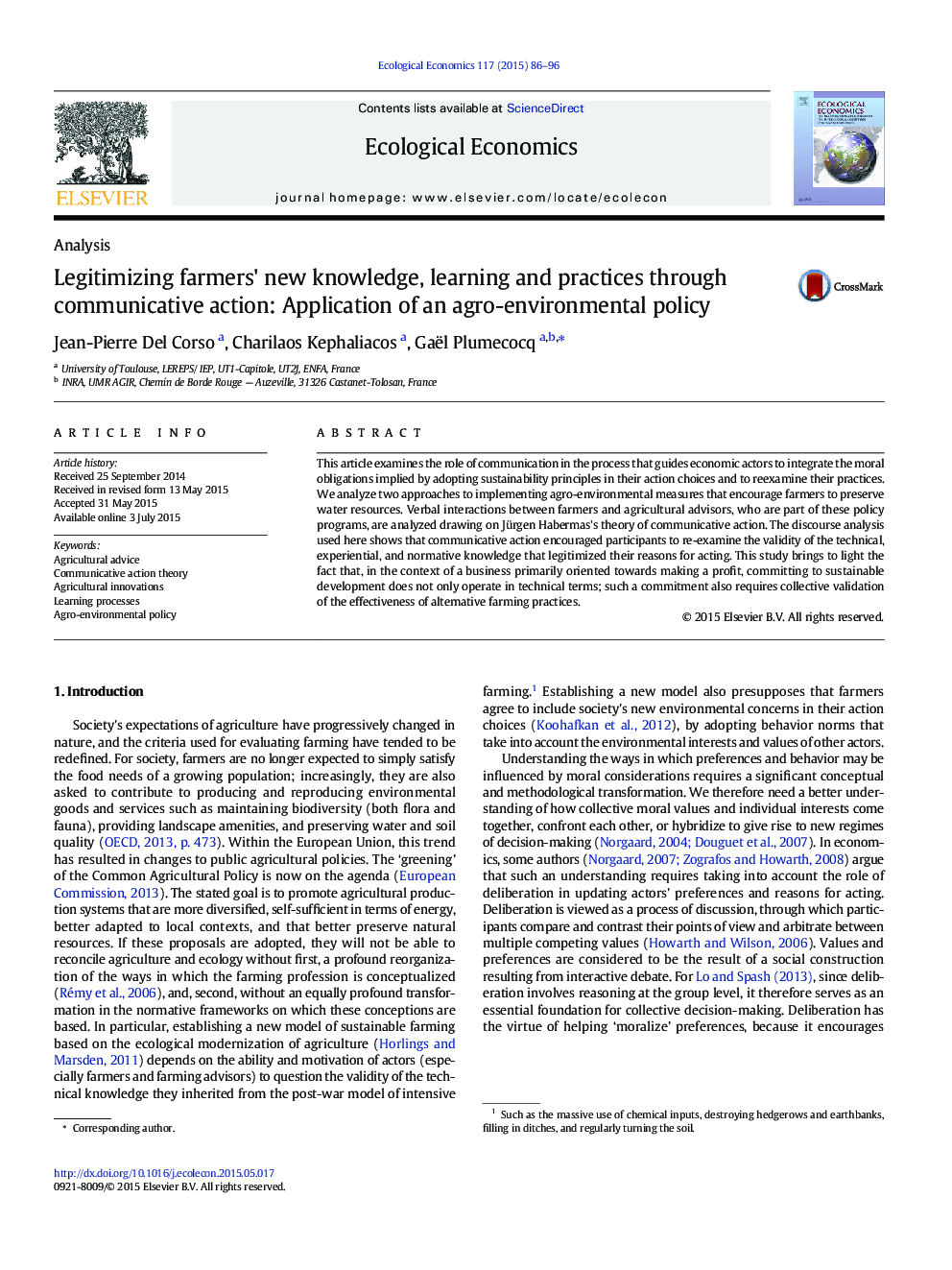| Article ID | Journal | Published Year | Pages | File Type |
|---|---|---|---|---|
| 5049280 | Ecological Economics | 2015 | 11 Pages |
â¢We examine the different strategies of agricultural advice used by two French farmers' cooperatives.â¢We use lexicometry to analyze how knowledge is disseminated through communicative action.â¢Personalized advice was more effective in changing practices than advice by territorial sector.â¢Agronomic innovations were adopted when supported by a normative commitment.â¢Changing agricultural practices requires redefining the way the farming profession is conceptualized.
This article examines the role of communication in the process that guides economic actors to integrate the moral obligations implied by adopting sustainability principles in their action choices and to reexamine their practices. We analyze two approaches to implementing agro-environmental measures that encourage farmers to preserve water resources. Verbal interactions between farmers and agricultural advisors, who are part of these policy programs, are analyzed drawing on Jürgen Habermas's theory of communicative action. The discourse analysis used here shows that communicative action encouraged participants to re-examine the validity of the technical, experiential, and normative knowledge that legitimized their reasons for acting. This study brings to light the fact that, in the context of a business primarily oriented towards making a profit, committing to sustainable development does not only operate in technical terms; such a commitment also requires collective validation of the effectiveness of alternative farming practices.
